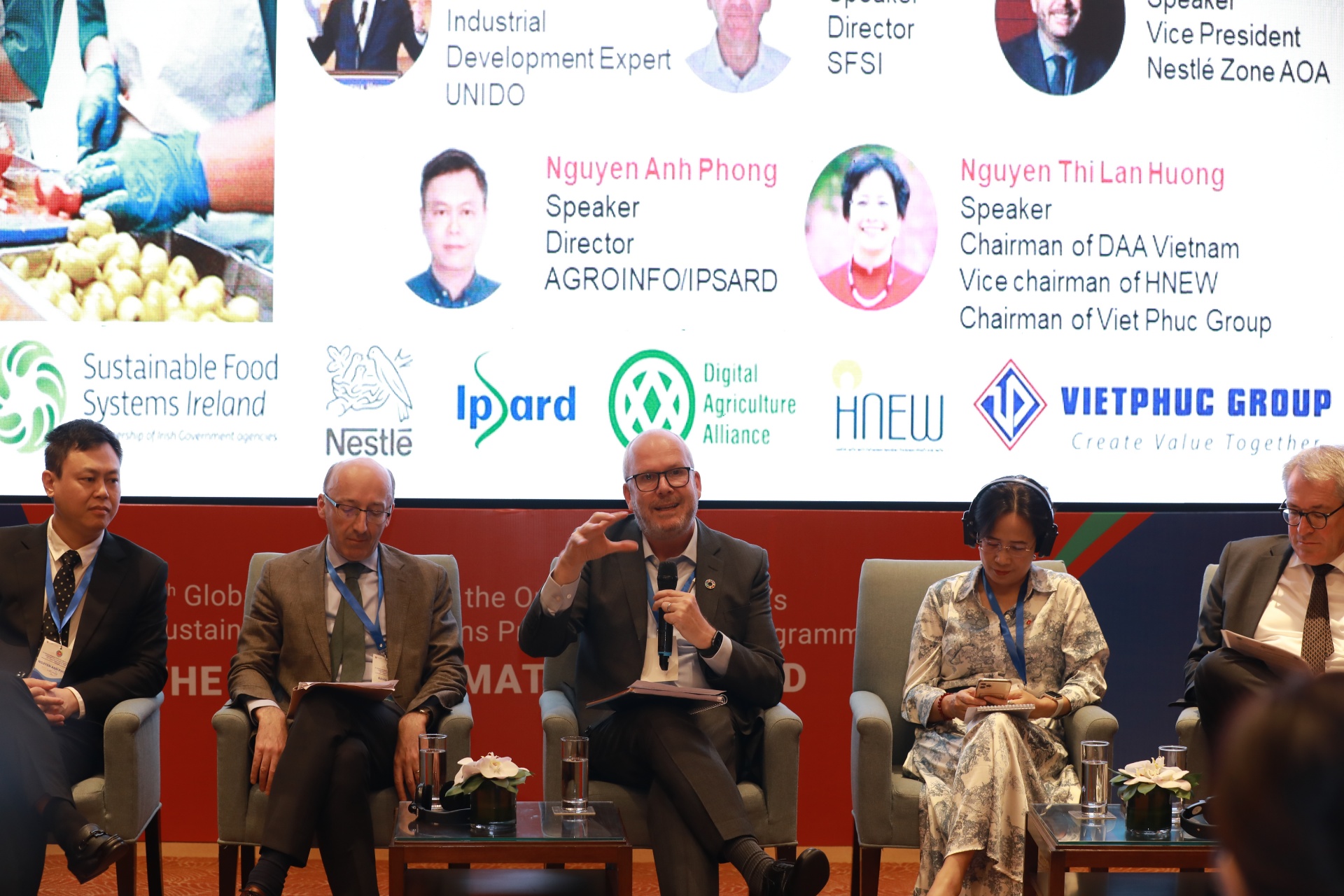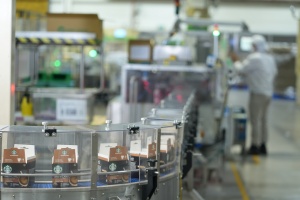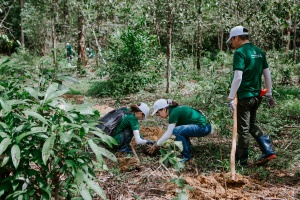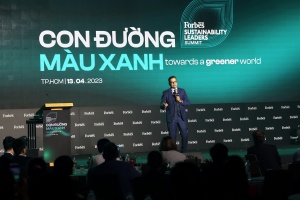Nestlé drives Vietnam's transition to sustainable food system
 |
On April 25, the Ministry of Agriculture and Rural Development and the United Nations Industrial Development Organization organised the Industrial Clusters towards a Sustainable Food System in Vietnam event, bringing together representatives of regulatory agencies, experts, and businesses to discuss and find solutions for building agro-economic clusters to promote the transformation of Vietnam's food system.
Chris Hogg, head of Sustainability and Communications for Asia, Oceania, and Sub-Saharan Africa at Nestlé, said that the company is currently supporting farmers in many countries, including Vietnam, to transition to a regenerative food system. The change aims to protect and contribute to the restoration of the environment and enhance the livelihoods of farmers.
Accordingly, Nestlé implements many initiatives to promote regenerative agriculture for livestock and farming. It commits to sourcing half of its key ingredients through regenerative agriculture methods by 2030.
Nestlé has recently announced the Nescafé Plan 2030 to support the transition to regenerative agriculture and help realise the firm's commitment to net-zero emissions by 2050. Vietnam is one of the seven main markets where the Nescafé Plan 2030 is being implemented.
This involves about 600,000 farmers around the world, mostly smallholders, and each region and farm are unique, so regenerative farming practices are designed by Nestlé or its agricultural experts to suit the different conditions. However, these practices remain easy to implement at a reasonable cost and can be replicated across different regions.
In Vietnam, the plan was launched in 2011, and it has successfully attracted 21,000 coffee farmers in the Central Highlands. The scheme has contributed to improving the quality of Vietnamese coffee beans, while also helping to increase farmers' incomes by 30-100 per cent and reducing CO2 emissions per kilogram of harvested coffee.
Hogg said, "To assure the efficiency of the transition, we need to put farmers and farmworkers at the heart when designing programmes. We also need to make sure these initiatives benefit communities and the planet."
From his experience implementing regenerative agriculture in other countries, Hogg added that the biggest challenge when applying new farming methods is the trust of the farmers. This is the decisive factor for the success of the transition.
Any changes must bring real benefits to farmers, society, and the environment. Therefore, Nestlé has piloted the programme on a small scale to evaluate its effectiveness before scaling it up to create a really positive impact, thereby gaining the trust of farmers.
At the same time, the company also applies the training the trainer method. Accordingly, each group of 50-100 farmers will appoint a representative to participate in the Nestlé training programme. This representative will then retrain the members of their farmer group.
However, there are many other challenges in converting agricultural models to make them more sustainable. It is difficult to convince farmers to change their farming habits that have existed for many generations. For example, they do not believe that reducing the use of inorganic fertilisers improves soil quality, which in turn increases crop yields. In Vietnam, the Nescafé Plan course has proven to reduce the amount of irrigation water by 40 per cent and the amount of chemical fertilisers and pesticides by 20 per cent, while still ensuring crop yields.
Hogg finished by saying that multilateral cooperation will help governments, organisations, and the private sector to understand regenerative agriculture. As a result, farmers can receive the proper advice and guidance to replicate the model.
The Nescafé Plan is implemented by Nestlé in Vietnam through a public-private partnership model in cooperation with the Ministry of Agriculture and Rural Development, the Agricultural Extension Centre of the Central Highlands, and the Western Highlands Agriculture and Forestry Science Institute.
 | Nestlé boosts exports of high-value products made in Vietnam Nestlé Vietnam continues to strengthen production and diversify export products to help Vietnam become a centre of global food and beverage (F&B) supply. The company expects its export activities to achieve double-digit growth in 2023. |
 | Nestlé recognised for efforts to protect forests According to Global Canopy’s “Forest 500” report, Nestlé is ranked as one of the Top 3 businesses with a strong commitment to minimising the risks of deforestation. |
 | Nestlé Vietnam promotes the circular economy model On April 13, the 2023 Sustainable Development Conference brought together experts and representatives of industry leaders in Vietnam. These included Binu Jacob, general director of Nestlé Vietnam, who shared his belief that environmental pollution and resource depletion are disrupting the natural regeneration cycle and causing climate change. |
What the stars mean:
★ Poor ★ ★ Promising ★★★ Good ★★★★ Very good ★★★★★ Exceptional
 Tag:
Tag:
Related Contents
Latest News
More News
- Vingroup consults on carbon credits for electric vehicle charging network (January 28, 2026 | 11:04)
- Bac Ai Pumped Storage Hydropower Plant to enter peak construction phase (January 27, 2026 | 08:00)
- ASEAN could scale up sustainable aviation fuel by 2050 (January 24, 2026 | 10:19)
- 64,000 hectares of sea allocated for offshore wind surveys (January 22, 2026 | 20:23)
- EVN secures financing for Quang Trach II LNG power plant (January 17, 2026 | 15:55)
- PC1 teams up with DENZAI on regional wind projects (January 16, 2026 | 21:18)
- Innovation and ESG practices drive green transition in the digital era (January 16, 2026 | 16:51)
- Bac Ai hydropower works stay on track despite holiday period (January 16, 2026 | 16:19)
- Fugro extends MoU with PTSC G&S to support offshore wind growth (January 14, 2026 | 15:59)
- Pacifico Energy starts commercial operations at Sunpro Wind Farm in Mekong Delta (January 12, 2026 | 14:01)






















 Mobile Version
Mobile Version